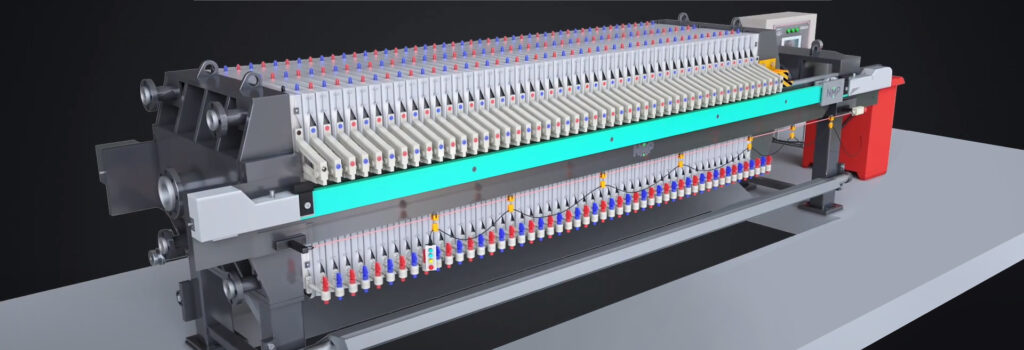- Company
- Products
- Filter Presses
- Recessed Filter Press
- Membrane Filter Press
- Plate & Frame Filter Press
- Semi-Automatic Filter Press
- Fully Automatic Filter Press
- High Pressure Filter Press
- CGR Zero leakage Filter Press
- Manual Filter Press
- Dialyser Filter Press
- Hand Hydraulic Filter Press
- Round Plate Filter Press
- Stainless Steel Filter Press
- Heat Stabilised Filter Press
- Overhanging Filter Press
- Filter Plates
- Automation & Auxiliary
- Filter Cloths
- Filter Presses
- Services
- About Us
- FAQs
- Blogs
- Application
- Gallery
- Contact Us

Chimodia Naka, Near Railway, Crossing Bilimora, Bilimora - Gujarat (India.) - 396321.
Request a Quote
Looking for a quality and affordable builder for your next project?

Toll Free
1-800-987-6543
Contact details
- Company
- Products
- Filter Presses
- Recessed Filter Press
- Membrane Filter Press
- Plate & Frame Filter Press
- Semi-Automatic Filter Press
- Fully Automatic Filter Press
- High Pressure Filter Press
- CGR Zero leakage Filter Press
- Manual Filter Press
- Dialyser Filter Press
- Hand Hydraulic Filter Press
- Round Plate Filter Press
- Stainless Steel Filter Press
- Heat Stabilised Filter Press
- Overhanging Filter Press
- Filter Plates
- Automation & Auxiliary
- Filter Cloths
- Filter Presses
- Services
- About Us
- FAQs
- Blogs
- Application
- Gallery
- Contact Us

Chimodia Naka, Near Railway, Crossing Bilimora, Bilimora - Gujarat (India.) - 396321.
Request a Quote
Looking for a quality and affordable builder for your next project?

Toll Free
1-800-987-6543
Contact details
Request a Quote
Looking for a quality and affordable builder for your next project?
Membrane filter press vs. chamber filter press
- Home
- Membrane filter press vs. chamber filter press
Membrane filter press vs. chamber filter press

Overview of Filter Press Technology
Filter presses are essential tools in industrial dewatering and solid-liquid separation. Among the various types available, the most commonly used models are the chamber filter press and the membrane filter press. The right choice depends on your application, industry requirements, and desired moisture content in the filter cake.
Whether you’re working in pharmaceuticals, mining, chemicals, or wastewater treatment, understanding the difference between these filter presses can help improve efficiency and reduce processing time.
How Filter Presses Work
Both types of filter presses operate on the principle of slurry injection and filtration. The slurry is pumped into the center of the unit, filling each chamber. As chambers fill, pressure builds due to the formation of sludge cake, and the liquid is drained through filter cloths using hydraulic or pneumatic force.
The process ensures a compact filter cake is formed, separating solids from the filtrate. However, each press type offers unique advantages, depending on whether maximum dryness or simple filtration is your goal.
Membrane Filter Press – Meaning & Working
A membrane filter press uses advanced technology where a flexible membrane inside the filter plates inflates using compressed air or liquid. This squeezes the filter cake further, removing excess water and achieving ultra-low residual moisture.
Key Advantages of Membrane Presses:
-
Shorter filtration cycle time.
-
High dryness of the filter cake.
-
Ideal for industries requiring high-efficiency dewatering like:
-
Mining
-
Chemical plants
-
Pharmaceutical manufacturing
-
-
Utilizes polypropylene filter plates with embedded membranes.
This makes membrane presses a powerful, reliable choice when operational speed and filter cake dryness are top priorities.
Chamber Filter Press – Meaning & Working
A chamber filter press is a traditional, cost-effective filtration system that consists of two parallel plates with a filter cloth between them. As the plates are pressed together, they form chambers to collect the solids.
Advantages of Chamber Presses:
-
Economical and low maintenance.
-
Suitable for mechanical separation of slurry.
-
Best used where moisture content is less critical, such as:
-
Sewage treatment
-
Ceramic slip
-
Metal finishing and electroplating sludge
-
Made with high-strength polypropylene, chamber plates offer durability and long-term use in medium-duty industrial applications.
Chamber vs Membrane Filter Press – What’s the Difference?
| Feature | Chamber Filter Press | Membrane Filter Press |
|---|---|---|
| Moisture Content | Higher | Lower (due to membrane compression) |
| Cycle Time | Longer | Shorter |
| Cost | Lower initial cost | Higher initial cost, but better efficiency |
| Applications | Basic solid-liquid separation | Advanced dewatering and performance |
| Mechanical Complexity | Simple | More complex with squeezing membranes |
The main difference is the additional squeezing mechanism in membrane presses, which significantly improves dryness of the sludge cake before discharge.
Why Choose N M Patel & Co. for Filter Presses
At N M Patel & Co., we provide state-of-the-art chamber and membrane filter presses built for long-lasting performance across industrial sectors. With decades of experience, we help clients select and install the right press for their exact application—ensuring maximum efficiency, durability, and operational ease.
Whether you need a compact solution for ceramic slip or a fully automated membrane filter press for mining sludge, we have a system tailored to your needs.